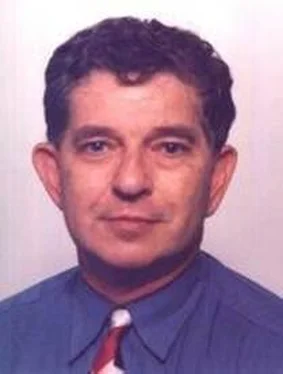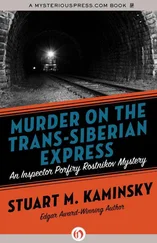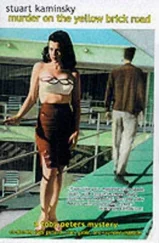“Deanna, take the children. I will follow.”
The young woman collected the children and walked them to the ice. She tapped the chair next to her. The detective sank into it.
“Do you remember what my husband was working on at the University?”
“Radiation, was it not?”
“Not quite,” she said, the teacher correcting a student. “Radioactive elements. Subatomic elements that could be isolated in uranium.” Her expression softened. “What neither I nor my colleagues told you was how far his work had taken him.”
The detective held up his hand. “No Madame. You are mistaken. It was not radioactive isotopes-uranium or otherwise. It was simple radiation.”
“Inspektor, do not presume to tell me about my work. I was a physicist, too, if you recall.”
“Yes, Frau Hesse. I remember. It was radiation. Not the other.”
She frowned, the lines at the side of her mouth tightening. “Perhaps you should tell me what it is you remember.”
He cleared his throat. “What I remember is that a group of Nazi thugs ambushed your husband. He was set up by a prostitute in a cabaret. Unfortunately, those type of incidents were all too common back then.”
She tapped her spoon against her cup. “But Inspektor, that was only part-”
He rode over her words. “No, Madame. You are wrong. You see, if it were any other way, if it were radioactive uranium your husband and his colleagues were experimenting with, I might have deduced something quite different.” She studied her tea cup. “I might have suspected they were trying to create nuclear fission.”
She jerked her head up.
“Which would mean they would soon be able to build a nuclear bomb.”
Her eyebrows arched. “Indeed.”
“I might also have suspected that word leaked out, as it always does in these matters, and that the Nazis demanded he turn over his work. Your husband would have refused, but it would have only been a matter of time. They would have blackmailed him, exposed his “activities,” perhaps even tortured him. And not just him. His colleagues, too. Your Friedrich would have-”
“We couldn’t allow that to happen,” she said quietly. “In the end, we had no choice. We had to protect the work. You must understand.” She drew in a long, shuddering breath. “It was decided I should come here.”
“Where you met with scientists who would later work on the Manhattan Project.”
She nodded.
“And let the Brown Shirts take the blame for his death.”
“So we hoped.” She shrugged her delicate shoulders. “Indeed, our biggest fear was you, Inspektor.”
“Me?”
“We were certain you knew. Or would discover it soon enough. You made us hasten my departure. Later, we were surprised by your silence. We decided you were a friend.” She paused. “And so you were.” She leaned back in her chair. “But how? How did you know?”
He hesitated. “His mistress confessed that the Brown Shirts came to the cabaret the night after he was killed. The rest was not difficult.” He stared at the skaters. The tall blonde was now partnered with a dark young man. Arms entwined, they skimmed the surface of the ice, skating in perfect synchrony. “But my dear Frau Hesse, I have a question for you. How could you do it?”
Swallowing, she stared at her teacup for so long he wondered if she would reply. Then, she looked up and waved a hand towards the children. “There is your answer, Inspektor.”
He twisted toward the children, his and hers. Their eager young faces sparkling as they followed the skaters. Bright new stars shooting across a cold, dark heaven. He looked back at Frau Hesse. Her eyes filled.
“You see?” Blinking hard, she smiled her tears away. The gentle smile of a friend. “Perhaps you will join me for a schnapps, Herr Inspektor? It was my husband’s favorite.”
Goin’ West by CHARLES ARDAI
I
Arthur French, a man whose bearing and expression were not so much boyish as they were a failed attempt to appear so, looked down at the avenue outside his office and wished he had the guts to open his window and throw himself out of it.
But he hadn’t, so after a few minutes of staring at the traffic below while a cigarette burned itself to ash between his fingers, Arthur returned to his desk. The portfolio he had been going through when he had been overcome with his sudden attack of self-revulsion lay open on his blotter. Arthur stubbed out his cigarette and went back to work.
He had already discarded twenty-three women, turning the pages that held their hopeful eight-by-tens without so much as a stirring of interest. He had only pulled two photos from their plastic sleeves: Lisa Brennan, a striking blonde who’d have to look over her shoulder to see thirty, much less the twenty-seven she claimed, and Angela Meyer, a homely brunette-that nose!-whose bikini shot had nevertheless caught Arthur’s eye. He’d covered her face with his hand. Maybe she’d do for some body doubling, or for the shower scene establishing shot where they’d need extras. Nobody would have to see her face. Arthur had pulled the picture and dropped it face down next to his telephone.
Angela’s credits, listed on the back, read like a young actress’s dream: Cordelia in King Lear, the baker’s wife in Into The Woods. But that’s probably all they were-a dream. What she’d left out was that King Lear had been a showcase in someone’s apartment on the Upper West Side and that Into The Woods had been summer-stock in Connecticut. Or vice versa. Hell, Arthur told himself, a woman who wants to do Cordelia doesn’t send her agent around with a photo that shouts “playmate of the month” at the top of its lungs.
Brennan’s credits had sounded more realistic: bit parts on a couple of soaps, some commercials, guest spots on two short-lived sitcoms. Plus one feature a few years back where she’d played Goldie Hawn’s sister, a two-line part that had gotten her into SAG. At least she wasn’t as likely to embarrass herself in front of the camera.
Arthur flipped through the rest of the portfolio, his interest waning from minimal to zip. Bunch of hungry little tramps who’d push each other in front of a train for a line of their own in the end credits, especially as a character with a name instead of something like “Woman In Cab.”
Hell, they’d kill for “Woman In Cab,” too.
He closed the book and zipped it up, then slipped the two photos he’d selected into his project folder. Two appointments for Rose to set up, two distant, distant, distant possibilities for Goin’ West, and one less agent to deal with on the project. He stuck the portfolio in its mailer and started it on its way back to Jennifer Stein, the madam who had pulled this Kodacolor harem together and dropped it on his desk.
He fingered his lead-crystal ashtray, overflowing with Camel butts, then pulled a new cigarette from his pack and lit it. Somewhere halfway through the pack, Freddie Prinze’s agent blew Arthur off, followed by Jason Biggs’s and James van der Beek’s. Never mind Ashton Kutcher’s-it wasn’t worth the phone call. Not for a project that would get a five-week theatrical release, if that, on its way to video stores across the U.S. of A. James van der Beek was too big for this project, for God’s sake.
Arthur ran his hand through his hair, permanently damp from a steady diet of Grecian Formula and Nexus, then slid the project file into its pendaflex folder and left it for Rose to file. The women would be easy to cast-no star or even B-lister needed. The male lead and his buddies, on the other hand, had to be names that meant something to teenage boys.
If all else failed, he’d go after Corey Dunn or Jon Farrell. William Fitch, their agent, owed Arthur favors that had major price tags hanging all over them. Shame to call them in for a dog like Goin’ West, though.
Читать дальше












